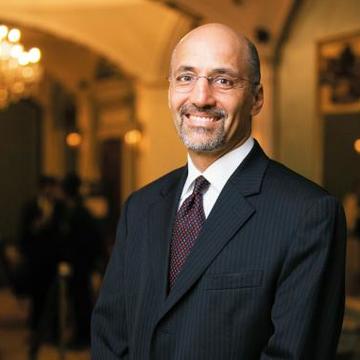From the Director: A new year, an old crisis
The 2008–9 financial meltdown is more relevant than ever
Welcome to 2019. With history as our guide, we invite you to look back a decade to 2009.
Next Thursday, January 10, the University of Virginia’s Miller Center will co-host an event at the Brookings Institution in Washington, DC, that will explore the response to the 2008–09 financial crisis amidst a presidential transition. The event is packed with leading scholars and practitioners of that economic earthquake and recovery.
Headlining will be Lawrence Summers and Peter Orszag, leading economists who served in the incoming Obama White House (as director of the National Economic Council and director of the Office of Management and Budget, respectively), working alongside the outgoing George W. Bush team in crafting both an immediate and long-term response.
Next week’s event isn’t just about history. It’s also about lessons for today and tomorrow.
Are we prepared to handle the inevitable next crisis, whenever it may occur? Stock market turbulence in the final weeks of 2018 is now succeeded by the 2019 transition of power in the House of Representatives from GOP to Democratic control. Economic uncertainty and political uncertainty are a potentially potent combination. President Trump, Senate Majority Leader Mitch McConnell, and soon-to-be Speaker of the House Nancy Pelosi would be well-served to pay attention to the lessons of 2009.
Thursday’s event builds on the Miller Center’s ongoing research on financial shocks and presidential responses. Faculty Senior Fellow Robert Bruner (dean emeritus at UVA’s Darden School of Business) first highlighted this issue in an essay he wrote for our First Year Project, where he laid out key lessons from eight previous crises.
In a companion First Year Project essay, the University of California–Berkeley’s Barry Eichengreen contrasted the cooperation of President George W. Bush and incoming President Barack Obama in 2009 with the feuding of President Herbert Hoover and incoming President Franklin Delano Roosevelt in 1933.
So, what have we learned from the crisis of a decade ago? What have we fixed? What still needs fixing? Robert Bruner has worked with an impressive team of faculty members across the University of Virginia who have been researching and team-teaching different dimensions of these questions. Next week’s event brings together several of those experts with other leading scholars and practitioners to assess what worked and what did not—and the political aftershocks of both the crisis and the response.
I hope you will join us on January 10 at the Brookings Institution in DC as we take this important public discussion forward. (You can register for a seat here.)
